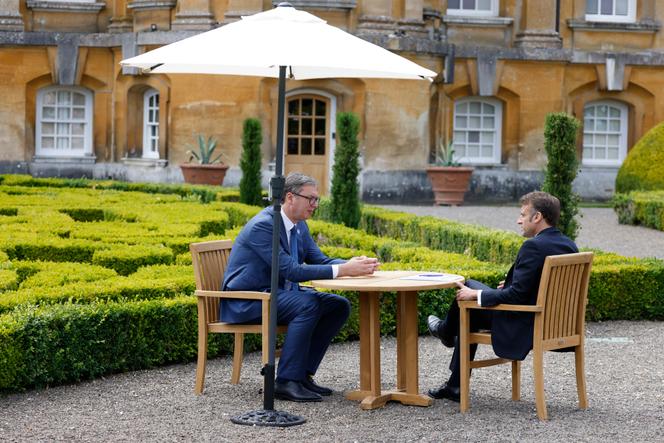


Although France is in the midst of a political crisis, Emmanuel Macron is expected to make a sensitive trip to Serbia on Thursday, August 29 and Friday, August 30. Although the Elysée has revealed few specifics about the visit, it is anticipated that the French president will take advantage of his meeting with his Serbian counterpart, scheduled for Thursday evening, to announce a deal on a contract to sell 12 Rafale fighter jets to Belgrade. "Our hope is to see this issue come to a conclusion during the president's visit," confirmed the Elysée on Wednesday, August 28.
On the same day, Serbian President Aleksandar Vucic said in an interview with Agence France Presse (AFP) that he expected to sign the contract during the visit. "It's a huge contract for our country, and not a small one even for France," he said, citing a figure of €3 billion euros, a number that the Elysée refused to confirm. He also mentioned agreements concerning "electricity" with French provider EDF at a time when Serbia is hoping to revive its nuclear industry.
It has also been announced that, on Friday, Macron will visit a museum and an economic forum dedicated to artificial intelligence in Novi Sad, the country's second-largest city. However, the Rafales are attracting the most interest in Serbia. The country's army only has old Soviet MiG-29s. Vucic, who has already visited Paris twice this year, has been promising for months that the contract with French manufacturer Dassault is almost complete. On the other hand, the French side has been much more discreet on the matter. Exporting Rafales to this country, known for its closeness to Moscow and its sometimes bellicose intentions toward its Balkan neighbors, raises a number of questions.
This contract represents "a strategic choice" for Serbia, which is "part of the logic of anchoring itself to the European Union," said the Elysée. How does France intend to guarantee that Rafale technology will not be passed on to Russia or used to put pressure on neighboring Kosovo, whose independence is not recognized by Belgrade? "There are obviously clauses governing the transfer of such equipment," said the Elysée, refusing to go into details.
Although Macron's advisers often insist that he is not oblivious to Serbia's troubling slide under Vucic, who has ruled his country of 6.6 million inhabitants with an iron fist since 2012, halting virtually all the reforms required to join the European Union, it must be said that the French president frequently shows support for Vucic, who relishes transactional diplomacy with the great powers such as Russia, China or the West.
You have 59.87% of this article left to read. The rest is for subscribers only.
